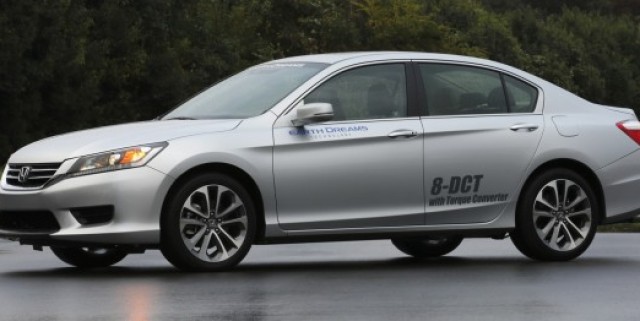Honda has introduced a new eight-speed dual-clutch automatic transmission to replace its ageing five-speed auto and complement its range of continuously variable transmissions (CVT).

Unlike conventional dual-clutch transmissions, Honda’s eight speed DCT employs a torque converter for a smoother shift and a more regular automatic feel at low speeds and take off.
Strangely, the eight-speed DCT can only handle around 270Nm of torque, which rules it out for the company’s 3.5-litre V6 and the recently announced 2.0-litre turbo engine.
It will, however, theoretically work with the 1.5-litre turbo and the regular 2.4-litre naturally aspirated models.
CarAdvice was given the opportunity to drive an Accord equipped with a 2.4-litre engine and the eight-speed DCT at Honda’s research and development centre in Tochigi, Japan.
Although Honda insists that CVT will be its core transmission going forward, the introduction of the eight-speed DCT is a sign that the Japanese car maker understands the need for more exciting transmissions going forward.
Around Tochigi’s 4km test circuit we came to appreciate the genius of a torque-converter inside a dual-clutch system; the combination all but eliminating the jerkiness experienced at low speeds with regular DCT systems while also providing rapid-fire gearshifts at full throttle.
We stopped and suddenly accelerated, hesitated on acceleration to try to get the system to react negatively, but it performed without fault. We even took it flat out up to 200km/h and felt every gear engage without hesitation or the slightest delay.
The only issue, which was entirely a prototype-only characteristic, was the steering wheel-mounted paddleshifters, which basically ignored all commands.
Honda will debut the eight-speed DCT in a vehicle with a 2.4-litre engine, potentially the Accord, CR-V or Odyssey. The Japanese company would not confirm any details regarding timing for the introduction of its new transmission.





